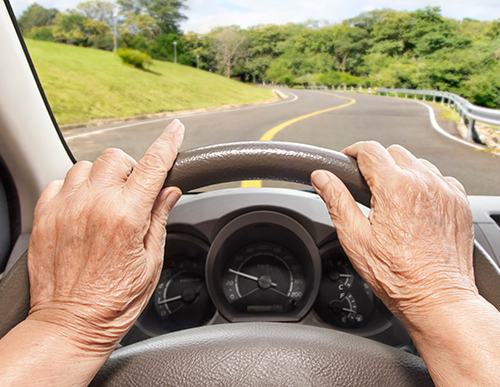
Hearing loss is one of the most common afflictions to hit older individuals, but is that a reason to stop driving? There is no clear cut answer to that question because no two people drive exactly the same way.
Hearing impairment is certainly something to consider when getting behind the wheel of a car, but a good driver doesn’t change just because they’ve noticed they have to turn up the radio these days to hear the music. For that matter, if you were a bad driver before your hearing started to decline, you’re probably still a bad driver.
What should a person who is experiencing hearing loss think about when planning to drive to work each day or take a road trip this summer? Is your hearing loss making you a dangerous driver?
Think Beyond the Wheel
If you are noticing hearing loss, it won’t have a huge impact on your driving ability…yet. That day is coming, though, if you decide to just ignore your decline. Johns Hopkins Medicine reports there is a distinct connection between hearing and brain health. Struggling to hear forces the brain to use valuable resources just to understand what people are saying. It is a contributing factor to brain atrophy, which leads to dementia. A person suffering from dementia certainly can’t drive.
What About Driving?
Driving requires effective observational skills and some of that relates to your auditory ability, but none of that means you can’t drive when there is hearing loss. The Center for Hearing and Communication states that about 48 million people in the U.S. have major hearing loss and a generous segment of them do still drive.
There is one study that found individuals driving a car with hearing loss are generally more visually aware of what’s going on and, typically, more careful than some hearing drivers. They drive at a slower pace when on the road and make use of their mirrors more to compensate for what they can’t hear.
Tips for Driving With Hearing Loss
Tip 1:
The first thing to consider is to stop procrastinating. See an ear specialist, get a professional hearing test and consider how hearing aids can change things for you. Hearing aids will eliminate the “should I be driving with hearing loss” problem once and for all.
Tip 2:
When wearing your hearing aids, you need to be be a more observant driver, which leads you to tip number two – get your vision tested. After all, when it comes to driving, vision is the thing that matters most, so it’s time to ensure yours is good enough for driving. Ask your physician to double-check your night vision, too, just so you know whether driving after sundown is a viable option for you. If you don’t hear well, you need to be extra cautious about your eye health and vision.
Tip 3:
Keep the chaos down inside the car, too. In other words, get the noise to a minimum, so you can focus on hearing the important stuff without distractions. Shut the radio off completely and ask anyone riding with you to keep quiet, as well.
Tip 4:
Get used to checking your dashboard regularly. It’s the little things that will add up when you drive with hearing loss. For example, you will no longer hear that clicking noise that tells you that your turn signal is on. You will have to rely on your eyes to pick up the slack, so get in the habit of checking to see what your car is trying to tell you.
Tip 5:
Make maintenance a priority. You’re not going to hear that rattling noise under the hood anymore or the warning bell telling you there is a problem with your engine or another critical component. That is a major safety hazard, so make a point of having your car serviced routinely. That’s a good idea for most people but a necessity if you are driving with hearing loss.
Tip 6:
Watch the other cars closely. Of course, you would do that anyway, but you want to look for signs you might be missing something. You may not hear emergency sirens, for instance, so if the cars pulling over to the side, you should too. Look to see how other drivers are responding to their surroundings to get clues on what you might not be hearing.
Can you drive with hearing loss? That’s up to you. It is possible to be a good driver even if your hearing is not what it used to be because odds are your other senses will help you make the adjustment. If the idea makes you nervous, though, then it’s time to see an ear specialist and find a solution to improve your situation like wearing hearing aids.
